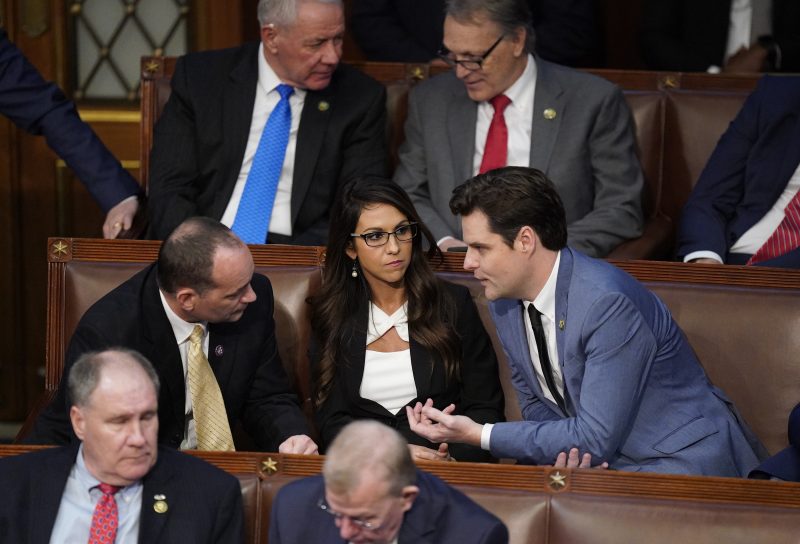And then there were six.
Kevin McCarthy made significant headway toward his long-sought goal of becoming speaker of the House on Friday afternoon. But even with 15 Republicans flipping to support him and bringing him closer to winning over a majority of the House, he remains a handful of votes shy.
Perhaps the best news for McCarthy on Friday was that he persuaded one particularly dug-in holdout: Republican Ralph Norman (S.C.), who once described himself as a “hard no” and said, “I’m not going to support Kevin McCarthy.” Norman had been one of five Republicans who telegraphed a hard line against McCarthy. McCarthy can probably lose only four votes from the GOP conference.
McCarthy expressed optimism after the 13th vote Friday. With the House adjourning until 10 p.m. to allow two McCarthy supporters to return to Washington, he predicted he would secure the speakership when they return.
So whom does he need to convince now?
Below is a rundown of the six holdouts — what they have said, where they come from and what they’re asking for. Reminder: McCarthy probably needs two of them. But he could also win if three of them vote “present,” or if one votes for him and one votes “present.” (For more on the whole process, see here.)
If McCarthy flips any of these, he will in all likelihood become speaker. These members — even more than Norman — have said they simply won’t vote for McCarthy, no matter what.
A spokesman has said Biggs “will not vote for McCarthy under any circumstance.” Gaetz was one of the original hard-liners, saying there was no concession that would change his mind. And Good, too, has said there is nothing McCarthy could offer that would win his vote.
As noted above, though, McCarthy could lose all three of them and still win. Which brings us to the next big one to watch.
We pegged Rosendale alongside Norman as less than a hard no heading into this week. Rosendale’s office has said he could be swayed, but only under “extreme circumstances.”
But Rosendale didn’t flip Friday. In fact, he seemed to take pleasure in holding the line. When asked for his vote, he said he was casting it for “KEVIN …” while waiting for the drama to build, and then added “ … HERN,” one of the other candidates. McCarthy allies didn’t seem to appreciate the theatrics.
Rosendale has requested rules changes that empower the rank and file, which McCarthy has given significant ground on — but apparently not enough. Also worth considering: Rosendale could run for Senate in 2024. While he might reason that holding out could help him win over voters in that primary, it also might alienate establishment Republicans who could support his bid.
Getting Rosendale wouldn’t be quite as significant as getting one of the three “hard nos,” but it would mean McCarthy probably only needs to flip one more member.
Boebert didn’t telegraph her opposition in advance as much, but she has emerged as one of the leaders of the band of holdouts. At one point, she even urged former president Donald Trump to tell McCarthy to drop out, which would seem a significant statement of her intent. She has also mixed it up with McCarthy-backing Republican Marjorie Taylor Greene (Ga.).
Boebert loves attention, and what better way to get it than to hunker down with the hardest of the hard-liners?
Boebert very narrowly won her reelection race this year. Aligning with the hard right at this moment and alienating those who could help her keep her seat in the future would seem unwise, especially if McCarthy is going to get across the line anyway.
The incoming freshman is perhaps the holdout we know the least about. He signed a letter last month that included requests for various rules changes. But the other six signatories all just flipped for McCarthy. Crane didn’t.
Asked by Punchbowl News on Friday what might change his vote, he said, “I don’t have an answer for you,” while citing his desire to stick to his “campaign promises.”

